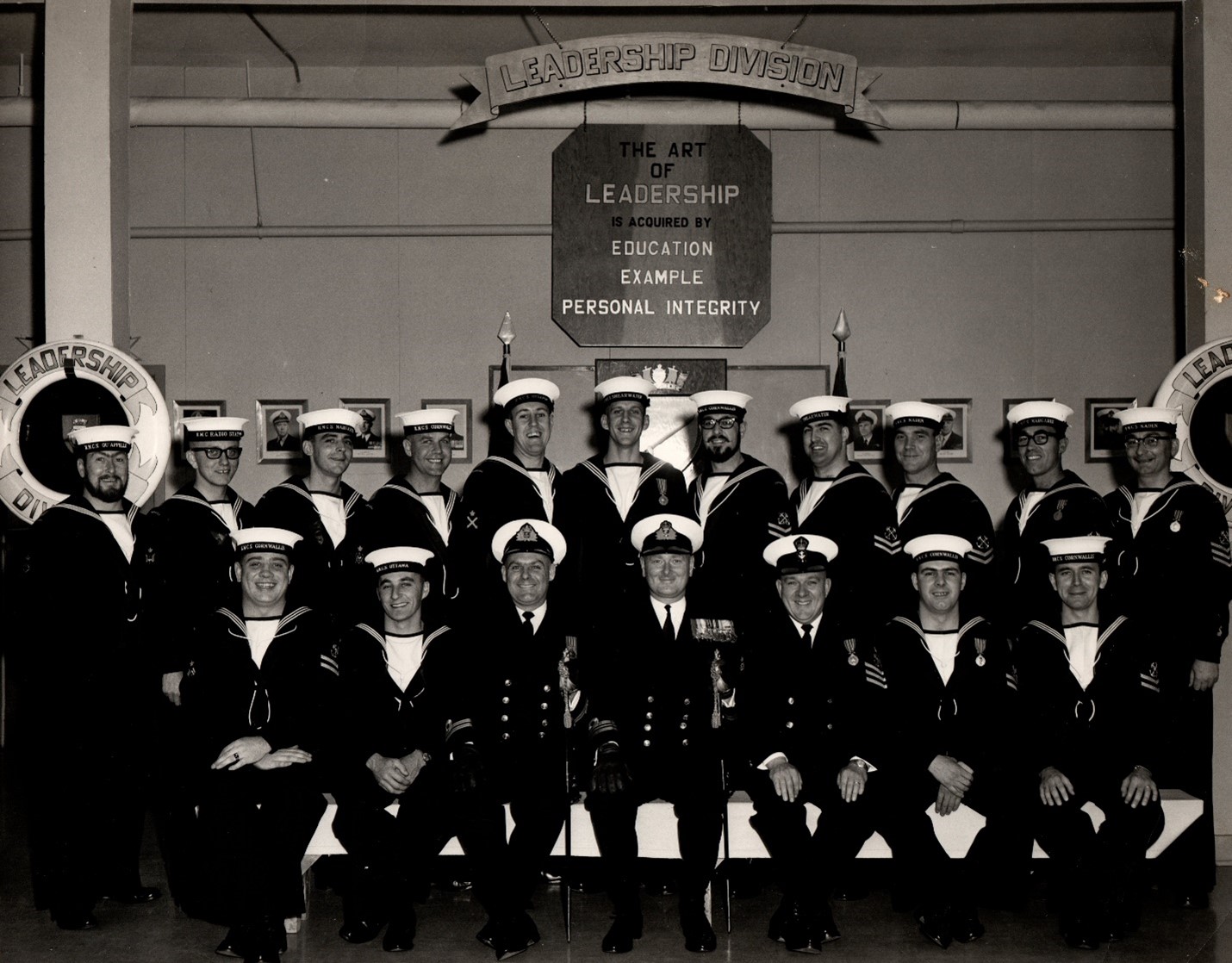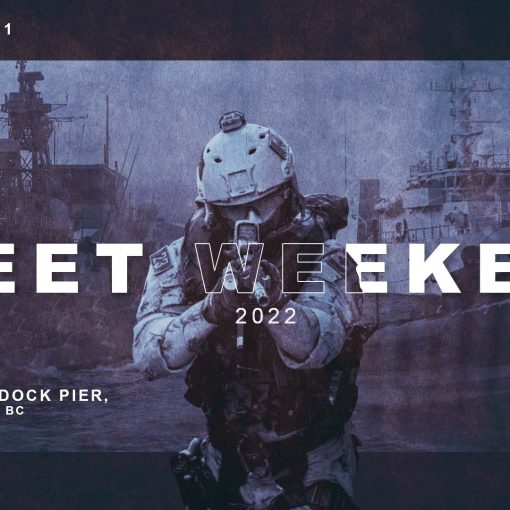By Roger Cyr, OMM, CD
There are now culture officers appointed to ships when they deploy to sea, with the role of ensuring that senior members abide with the naval code of conduct. The culture officers are there because of the failure of leadership, because of the lack of integrity of some senior officers. How demoralizing this would be for the entire ship’s company. What happened to pride in the navy and respect for all shipmates? Why should there have to be someone appointed to ensure everyone is treated with respect and dignity by senior members? It shows a rampant lack of leadership.
Leadership is the ability of an individual or a group to influence and guide followers or other members of an organization. It involves making sound and sometimes difficult decisions, creating and articulating a clear vision, establishing achievable goals and providing followers with the knowledge and tools necessary to achieve those goals. But most of all, it is showing respect for everyone. An effective leader possesses the following characteristics: self-confidence, strong communication and management skills, creative and innovative thinking, perseverance in the face of failure, willingness to take risks, and effective reaction in times of crisis. Leadership needs to be instilled in an early stage of the chain of command so that junior sailors and officers will blossom in their careers with the integrity and behaviour that is vital to the senior leadership of the navy.
In the past, junior members and junior officers had to attend a course at the navy’s leadership school in HMCS Cornwallis. The school emphasized that “The art of Leadership is acquired by Education, Example, Personal Integrity.” The courses were given to Petty Officers 2nd Class (PO2) and Sub-lieutenants (SLT). They stressed that leaders must possess three fundamental traits -- Truth, Duty, Valour. What happened to these three basic values of leaders? What happened to the divisional system in the navy? What happened to leadership training?
There are now obvious shortcomings regarding naval leadership, which caused the government to establish extraordinary organizations to remedy a major shortfall. This happened because some individuals ignored their obligations and responsibilities as leaders. They set aside their oath which is to maintain the highest standard of personal conduct, values and ethics at all times. What is most distressing is that other senior leaders were aware of situations but chose to turn a blind eye. Integrity implies a commitment to moral principles and obligations. Accordingly, being a person of integrity demands honesty, the avoidance of deception and adherence to high ethical standards. Integrity means doing the right thing at all times and in all circumstances.
Senior leaders need to be deck plate leaders, that is they need to understand the mission, know their team and their individual skills and above all lead by example. What should not be needed is a watchdog posted in units to ensure that no one steps out of line. What needs to take place is to go back to the basics of leadership principles and instill them throughout the fleet. It must be remembered that not all leaders are immoral, in fact the vast majority are above reproach. This global surveillance by an external appointee will not resolve the situation but will simply tarnish the reputation of all naval members whether sailors or senior officers.
What is needed is to separate academic learning from military and leadership training. The two Canadian military colleges, RMC Kingston and CMR Saint-Jean should no longer be academic institutions. Instead, they should be retooled to become the Canadian Forces Leadership Institutes. All officer cadets should go to civilian universities to obtain an academic degree. Upon graduation they should then attend one of the institutes for one year of military and leadership training, with emphasis on what Canadian culture is all about. It is about integrity and respectful behaviour. Similarly, newly promoted Sergeants and Petty Officers 2nd Class should also attend the institutes for a similar six-month course.
What is truly needed is to keep in mind the dictum of the old leadership school for PO2s and SLTs, i.e., that the art of leadership is acquired by education, example and personal integrity. There is an absolute need to resurrect this training for junior leaders so that they will carry the basic principles of leadership as they ascend to senior levels and become respected senior leaders with strong moral principles. While many leaders possess traits that come naturally to them or are developed early in their lives, most people need to obtain these attributes through leadership training, mentorship and experience as the methods to develop these capabilities.
Through specific and focused training, junior leaders will learn the principles of leadership and the divisional system. As leaders they will be expected to conduct themselves to the highest standard at all times, whether in and out of uniform. Although lip service is paid to the importance of the divisional system today, most junior members would be at a loss to explain its repercussions on daily activities of life at sea. The training should also re-introduce the divisional system. Junior leaders will realize their responsibilities towards their subordinates as defined in the system, and they will aspire to become a deck plate leader. They will learn to guide personnel in their daily duties and activities with respect and tolerance.
However, a system is only as good as those who implement it. The system has failed today but it has happened before. On more than one occasion during the history of Canadian naval service, the system broke down and the navy suffered some painful experiences that were close to mutiny. The Commission of Investigation into the causes of three serious events in 1948 and 1949 gave rise to the Mainguy Report which re-defined the need for the Divisional System. It is now well-defined, but it needs to be re-introduced to the junior leader level so that as they progress in their naval career the osmosis effect will prevail throughout the fleet. They will communicate, emphasize, teach and exemplify the essence and the importance of the basic core military values in a way that will reflect the realities of service at sea.
In 1943, the navy issued a booklet called “Notes on Divisional Work” which was distributed to naval officers before joining ships. Of course, the text dealt with conditions that prevailed in those war years, but most of it still applies today. It states clearly that the Divisional Officer in reality is in loco parentis in relation to sailors with responsibility for their welfare. The booklet concludes that the Canadian sailor is a fine person who deserves all the help, support and respect that officers can give. When you hear of an unhappy or inefficient ship, nine times out of ten, the fault lies with not with the ratings but with the officers. The booklet summarizes that putting the three virtues of unselfishness, humour and common sense into practice will ensure everyone is doing their part for a happy future for the navy and a speedy end to the present war. Today, these three virtues need to be applied by all naval leaders.
Leadership in the navy has run aground and the divisional system has failed. There needs to be a course correction to restore pride and respect at all the rank levels. The system has failed before and the naval ethos was restored and moral values were re-established. There is now another system failure that needs to be corrected. Appointing informants to ships and units should not be the way ahead. The solution should instead be to fix the system. It should be to re-establish specific leadership training for junior leaders, to instill honesty and professionalism at the base of the system. These junior leaders will develop into senior leaders who will then lead by example and show pride, tolerance, respect.






One thought on “Whatever happened to leadership?”
Dave Dunlop-Petty Officer 1st Class QGJM/CD2
Hello Roger. I cannot believe that the RCN has stooped to the point of directing/appointing any naval officer as a “cultural officer” to deploy any time our ships go to sea now. It reminds me of the old Soviet Union days when the KGB had “cultural officers” deployed on all their ships as well. Yes it does feel like the top brass is concerned about the RCN leadership today and these cultural officers are probably seen by the ship’s company as spies for our senior leaders at home, probably because the top brass has little leadership themselves and trying to cover-up their own leadership failures. You are correct in most of what you have said and the answer is correcting a defective Divisional System and going back to the basics of “true leadership training” from the ordinary sailor up to our top military leaders. Leadership is a set of skills and a certain psychology that are acquired and that anyone can and must master in the navy. Somehow through bad leadership from our “masters” we have lost the basics to sharpen those skills and put them to work for ourselves in our military career and in our private lives. I agree that we must quickly re-introduce basic to senior levels of leadership training at all levels from the junior sailor to the Commanding Officer levels and beyond. We have had a few natural leaders in the RCN but most good leaders are trained throughout their careers. Let’s get back to producing real leaders in the RCN and then we can truly say “Ready Aye Ready”! In My Own Opinion (IMOO).